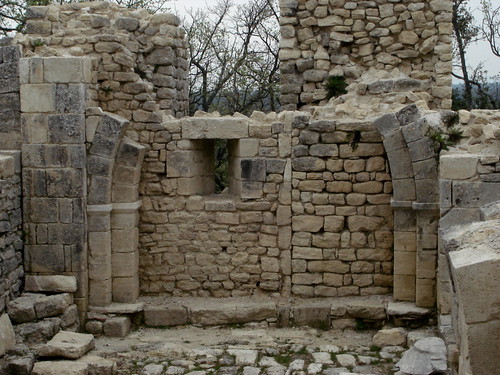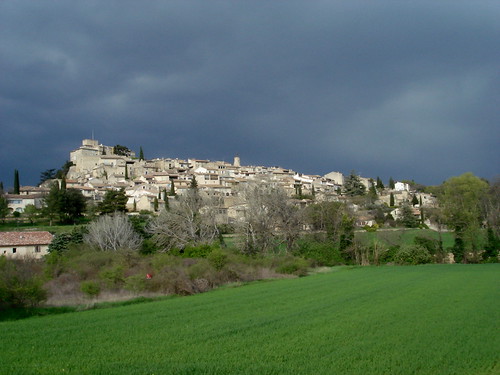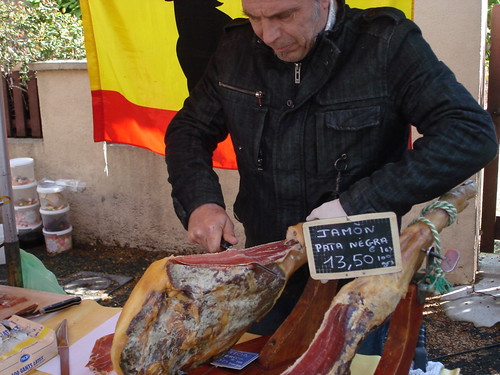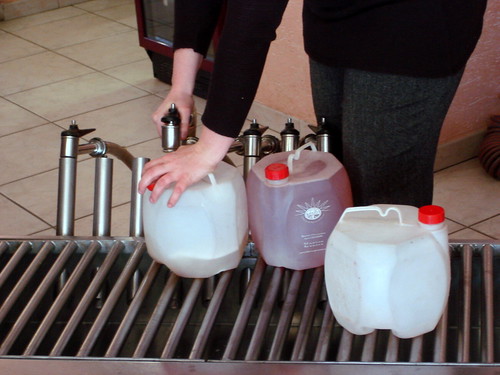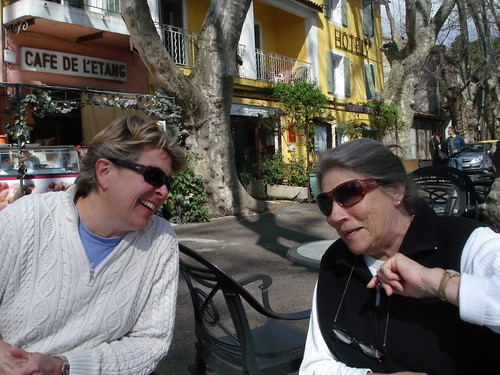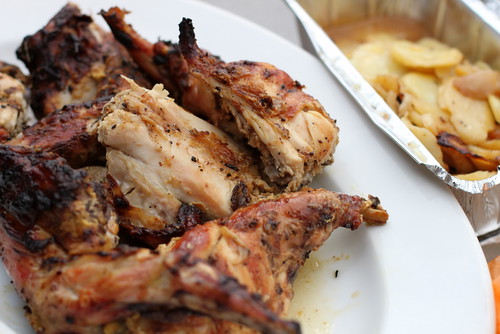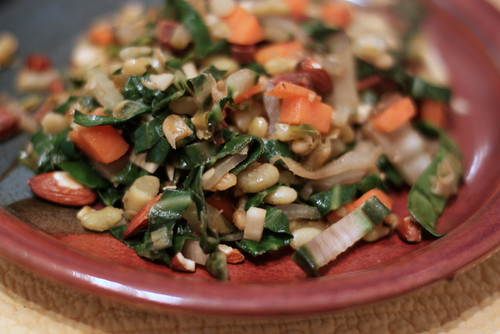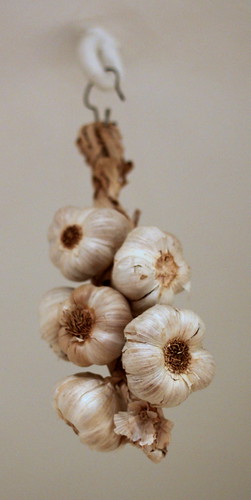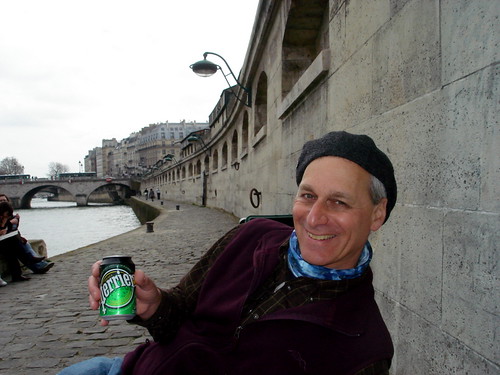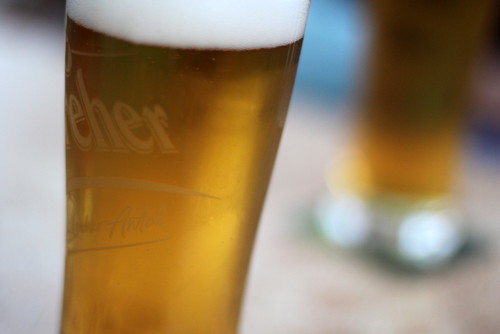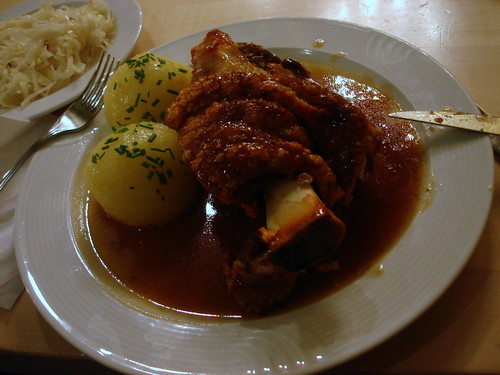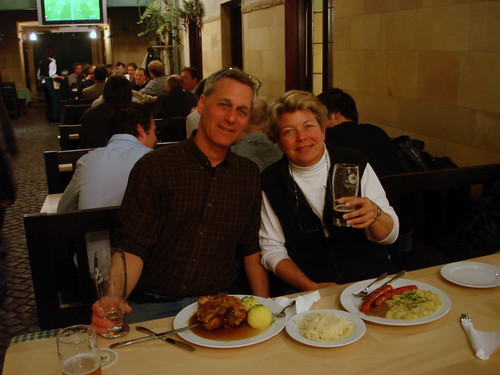When traveling about Europe, you can't help but be entranced with the remnants of the past that are everywhere. In the US, we have the occasional historical site, some less than 100 years old. Here, especially in the tourist areas, but really everywhere, everything has a long history. In Ansouis, the village where we're staying, there is a Chateau at the top of the hill that was built a thousand years ago. And ownership had been in the same family until just a couple of years ago. I sometimes wonder when I see villagers and farmers how long their families have lived in this region.
There are also ruins everywhere. Some from the Roman ages, some from medieval times. The Roman ruins are stunning, but they're generally bits and pieces lying around, that don't give a sense of what life must have been like. Some of the medieval ruins are well preserved. For example, the village of Oppede le Vieux is a place I'd seen last time I was here, and was eager to show Susan. The main attraction was the old village topped as usual by a chateau. Although this chateau was in ruins, there was enough left to give some feeling of the time. It had been a stronghold of a local ruler who had made it his business to seek out and destroy the Vaudois, the renegade Christians that were trying alternative approaches the the Pope's church. Oppede le Vieux is perched on a hill on the north side of the Luberon with a commanding view of the valley below. On the day we were there, it was crystal clear, and we could see Mont Ventoux.
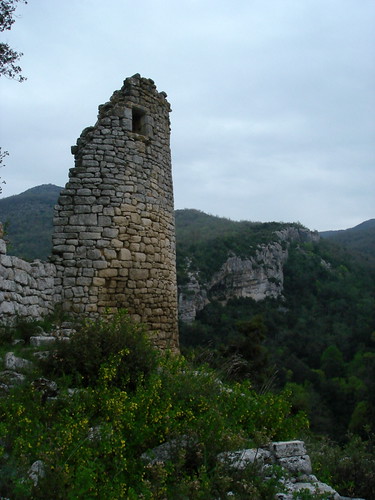 But this was one chateau in one medieval village. Then we visited Fort Buoux. Pronounced beyu-ouks we are told. Near the village of Buoux, a village of a little more than 100 people, this fort is on a promenade overlooking the Vallon de l’Aiguebrun, it has been inhabited for millenia, and there are archeological remnants dating back that far. What you see most obviously is the 13th century fort that was ordered dismantled in the 17th century by Louis IV. It had also been a place of refuge for the Hugenots (same as the Vadois? I'm not sure). There are several ramparts, guard towers, storage bins for grain and water, dwellings, and a Romanesque church. Plus a secret staircase down the back. The vantage point makes this place impregnable. An assortment of pictures on my Flickr page.
But this was one chateau in one medieval village. Then we visited Fort Buoux. Pronounced beyu-ouks we are told. Near the village of Buoux, a village of a little more than 100 people, this fort is on a promenade overlooking the Vallon de l’Aiguebrun, it has been inhabited for millenia, and there are archeological remnants dating back that far. What you see most obviously is the 13th century fort that was ordered dismantled in the 17th century by Louis IV. It had also been a place of refuge for the Hugenots (same as the Vadois? I'm not sure). There are several ramparts, guard towers, storage bins for grain and water, dwellings, and a Romanesque church. Plus a secret staircase down the back. The vantage point makes this place impregnable. An assortment of pictures on my Flickr page.These were not the dwellings of the privileged that we see most places in chateaus, castles, schloss, pallazo. These were people struggling to get by in homes no more ornate than caves, protected by several layers of trenches and walls, up on a hilltop promenade. Though clearly impregnable to attack, it seemed to us very vulnerable to siege. Where would the food come from if surrounded? The sheer cliffs nearby must have provided hiding spots for defenders of this fort. (Apparently, this is a favorite spot for rock climbers, too).
The fort is the property of the commune of Buoux. The caretaker lives on site and sells tickets in exchange for your 3 euros. While visiting "up top", we were surprised by his head popping up from under a cliff -- apparently free-climbing up the wall. He said he goes that way when he's in a hurry. We chatted with his wife (well, we assumed it was his wife) for a bit, and found that they've lived there for 40 year. Their home is graced by spectacular gardens, which they must have time to tend between groups of travelers. Sneaking a peek inside, we were surprised to see a substantial pile of books on the table -- not your average ticket taker!
